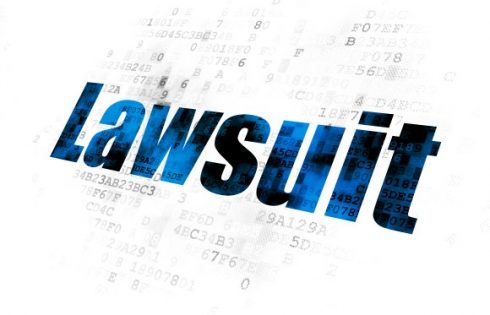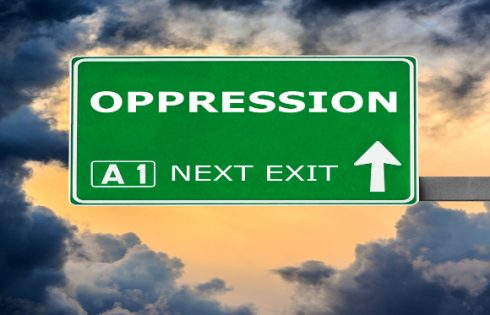
Arthur Brooks, the president of the American Enterprise Institute, wrote a great column in The New York Times on Sunday explaining the practical benefits of thankfulness in action.
In that spirit, here are a few people I’m thankful for in the zany college world:
The brave students at Princeton who not only spoke up against the rise of “intimidation and abuse” against people with certain viewpoints, but practically guaranteed they will suffer intimidation and abuse by signing their names to it. Their letter to President Christopher Eisgruber:
Academic discourse consists of reasoned arguments. We simply wish to present our own reasoned arguments and engage you and other senior administrators in dialogue. We will not occupy your office, and, though we respectfully request a minimum of an hour of your time, we will only stay for as long as you wish. We will conduct ourselves in the civil manner that it is our hope to maintain and reinforce as the norm at Princeton.
Let’s hope Eisgruber treats their petition with the same good faith that he attributed to the protesters who crashed his office and refused to leave. I’m not holding my breath, though.
Black journalist Keli Goff, also a television writer, who shared her own experience with racial incidents with grace and wisdom.
She was mistaken for a black actress by a “prominent media figure” at a glitzy party, and rather than publicly shame him and make a name for herself that way, she accepted his apology as “an embarrassing error in judgment from a well-meaning person and not some intentional offense by a racist”:
The fact that I made an effort to tell the difference in that moment, and gave him the benefit of the doubt, meant that he ultimately decided to make an effort to help me. Now thanks in part to him, I have had opportunities to write about all sorts of issues and people, including those of importance to the African-American community.
Goff warns that the protests sweeping college campuses are “already having a devastating impact on the efforts of minorities to advance in fields in which we are underrepresented—and in which our presence is needed now more than ever.”
You think TV writing is hard for minorities to break into now? Goff writes:
I know there are rooms of opportunity and power—including some writers rooms—that people like me are increasingly excluded from simply because the people in them are petrified of saying the wrong thing in front of me or another person of color or another woman and ending up vilified in social media or on a blog or in a protest. So instead they surround themselves with fellow white guys. …
[I]f the message becomes that we are so sensitive that we are unable to have rational conversations with those who may be well-intentioned but wrong (see Yale’s Halloween kerfuffle or the Dartmouth library siege), the conclusion will be that disenfranchised people of color are no longer worth including in any conversation that matters.
A student and dean at the University of Texas who understand both the constitutionality of “idiotic, backward ramblings” and the threat to academic freedom from the heckler’s veto.
Sophomore David Bordelon wrote in The Daily Texan that college is supposed to be where “revolutionary, oftentimes diverse, ideas are cultivated,” even those allegedly dumb ideas that students hate so much in contrast to their supposedly “dignified intellectual discourse”:
When protesters argue they have the right not to be offended at costumes, slurs and other offensive behaviors, they are missing an important point. They should be offended, and they should use their right to speech to educate the offenders on why those actions are offensive.
Randy Diehl, dean of the College of Liberal Arts, issued a firm statement criticizing pro-Palestinian activists’ attempt to shut down a scholarly talk by an Israeli scholar, who had been invited by Prof. Ami Pedahzur of UT’s Institute for Israeli Studies:
Students and faculty of every background, including Palestinians and Israelis alike, have enthusiastically received Prof. Pedahzur’s courses and his supervision of undergraduate and graduate research.
Although reviews are still ongoing, I wish to emphasize that there are places on campus for responsibly discussing disagreements. Disruption of a visiting scholar’s invited academic lecture violates principles of academic freedom and free speech that are crucial to our mission as a great university.
For background on the heckler’s veto exercised against Pedahzur and his invited scholar, Stanford’s Gil-Li Vardi, read Prof. David Bernstein’s Washington Post entry. (“Long live the Intifada” makes an appearance.)
The Foundation for Individual Rights in Education, which was just getting off the ground when I started fighting my own battles as a college student for the right to offend others in vigorous debate on campus.
The protests of the past several weeks have shone a light on the work FIRE often does away from the cameras and front-page stories, long before Mizzou and Concerned Student 1950 became rallying cries.
Having taken “hundreds of inquiries” about its perspective on the recent protests, FIRE explains that it strongly supports the right of students and faculty to demand the censorship and punishment of those with whom they disagree. But…
While students and faculty may call for censorship, college administrators and other agents of the college (including student government bodies) may not accede to any such demands. Students, on their own, do not have a responsibility to honor the Constitution or a college or university’s promises about freedom of expression. The same cannot be said for those who represent the institution. Institutionally, colleges and universities must refuse to give into demands that would compromise their ability to be a place where community members, as the Supreme Court wrote in Sweezy, “remain free to inquire, to study and to evaluate, [and] to gain new maturity and understanding.”
We should be immensely thankful that America’s genius is its ability to handle clashing ideas with so little violence, historically speaking. Consider this tweet Wednesday from Terry Teachout, drama critic for The Wall Street Journal:
https://twitter.com/terryteachout/status/669713462306742273
Like The College Fix on Facebook / Follow us on Twitter
IMAGE: Shutterstock







Please join the conversation about our stories on Facebook, Twitter, Instagram, Reddit, MeWe, Rumble, Gab, Minds and Gettr.